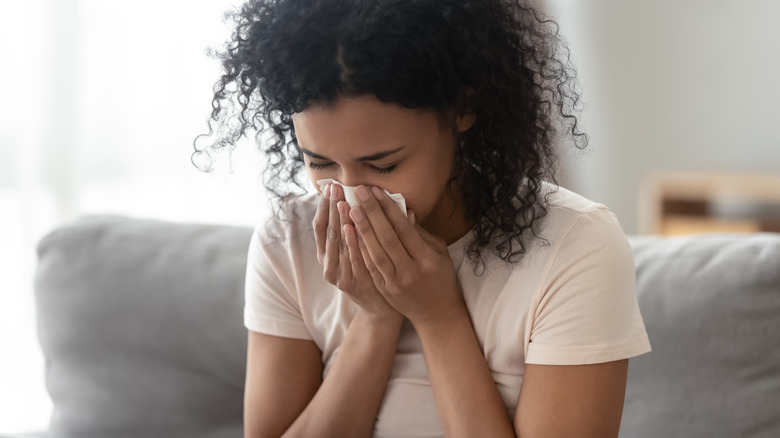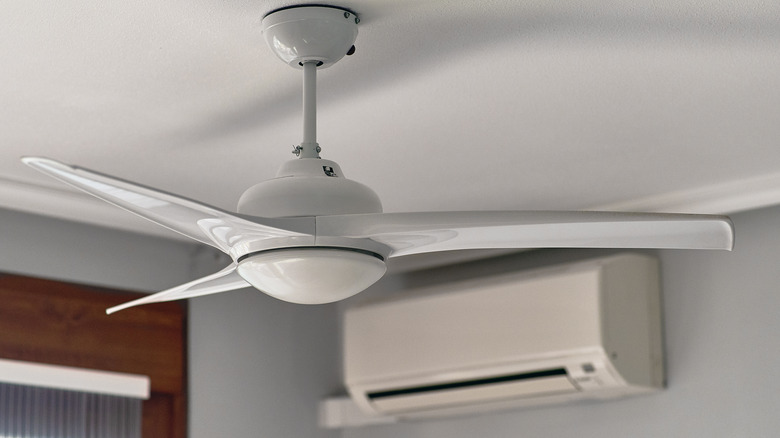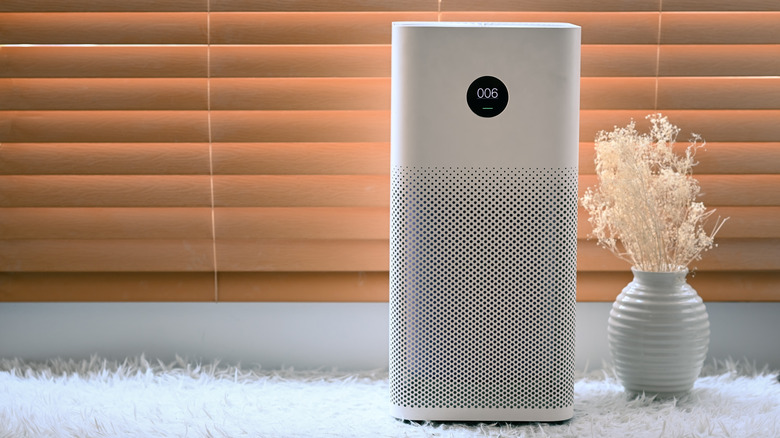AC Vs Fan: Which Is Better For Allergies?
In the spring, as flowers start to bloom and the pollen season begins, many start to struggle with allergy symptoms, even when indoors. This is because cracks in windows and doors, clothing, and the bottom of shoes can bring outdoor allergens into the home. Along with pollen, things such as mold, mildew, grass, weeds, dust, dust mites, dirt, and smoke can also cause reactions such as watery eyes, sneezing, runny nose, and headache.
Some may open their windows in the spring to bring in the fresh air, but the air might not be as clean as you think. While opening the windows could cause a cooling breeze to circulate around your home, it's also bringing in many of the dangerous allergens that may make you sick — and this is the case even if you keep the screen closed. Therefore, you should try to keep your windows shut as much as possible during the allergy season. Some may also wonder if turning on a fan or the AC is better for reducing the symptoms.
Ceiling fan vs AC
Before we can determine if a fan or your AC unit is better for allergies, we must first establish that maintaining these systems is so important to them performing properly. If your ceiling fan (or freestanding type) is covered in dust, turning it on will circulate these particles around your space, so make sure you clean the blades. Similarly, AC filters that aren't regularly cleaned are forced to push the allergens they collect back into the air, which would make your air quality worse.
Both a fan and your AC provide the same two benefits: they circulate the air and control humidity, which prevents the growth of mold and mildew. However, between these two systems, your AC is the clear winner. While a fan may seem like a better (and cheaper) choice, if there are any allergens present in your home, the blades will just circulate these particles around your space, causing you to breathe them in. Your AC, on the other hand, filters out harmful allergens and also works to clean the air.
The importance of air purifiers
At the same time, even while having the AC on, you may still struggle with annoying symptoms during the allergy season. If this is the case, air purifiers could help you feel better. According to a 2020 study published by the Yonsei Medical Journal, air purifiers with HEPA filters decreased both indoor pollutant levels and the need for medication among those whose allergies were caused by household dust mites.
These devices work by taking in the air, sending it through a filter, and then dispelling it back into the room. This process can happen quite often, up to a few times each hour. To make sure your air purifiers are as effective as possible, place one in each of the rooms that you use most frequently. Further, it's also extremely important to keep your windows shut, as opening them will let in excessive allergens that your purifier may not be able to handle.


